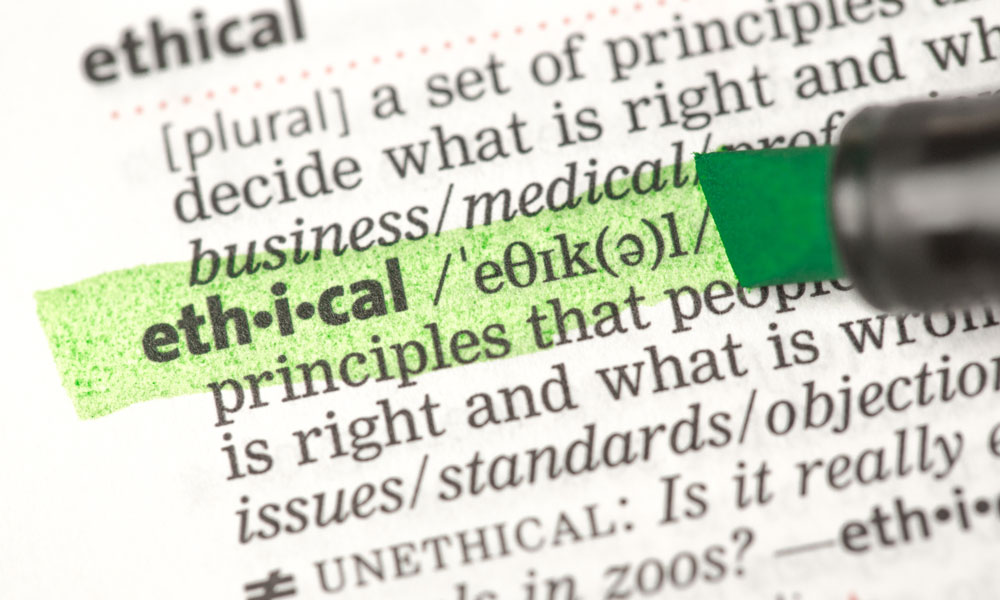
Gallup Survey: Nurses Again Most Ethical, Police Officers Rebound
The latest edition of the Gallup Honesty and Ethics Survey found that nurses ranked far above any other professionals, while lobbyists and members of Congress ranked near the bottom. Police officers, meanwhile, saw surprising improvement after a year in which law enforcement was closely scrutinized.
When it comes to ethical behavior, nurses have no real competition.
That’s according to Gallup’s 2015 Honesty and Ethics Survey, the latest edition of the annual marker for integrity among professionals. The survey found that 85 percent of respondents believed nurses are highly ethical—far above the totals that two other groups of healthcare professionals, pharmacists (68 percent) and medical doctors (67 percent), were able to muster. Those three fields topped Gallup’s survey.
It was the 14th straight year that nurses topped the poll—and the year they didn’t, in the immediate wake of the 9/11 attacks, they were outranked by firefighters.
The American Nurses Association welcomed Gallup’s findings, noting that members would use the momentum to improve the delivery of healthcare.
“It’s essential that we leverage this trust to lead and implement change in the healthcare system,” ANA President Pamela F. Cipriano said in a news release. “Hospitals, healthcare systems, and other organizations are lacking an important perspective and can’t make fully competent decisions if they don’t have registered nurses at the board table or in the C-suite. That’s why ANA is a member of the Nurses on Boards Coalition, working to place 10,000 nurses on boards by 2020.”
Likewise, the National Association of Chain Drug Stores welcomed pharmacists’ second-place ranking, the 13th straight year they have placed in the top three in the survey.
“This annual Gallup survey presents another data point in the strong and growing case for pharmacy patient care,” NACDS President and CEO Steven C. Anderson, CAE, said in a news release. “NACDS’ own opinion research shows another interesting finding: that those who have more firsthand experience with pharmacist-provided services feel even more strongly about their value.”
Police Bounce Back, Partly
But perhaps the most impressive showing in the survey was that of police officers. After their ethics rating fell below 50 percent in the 2014 Gallup survey, amid a rising tide of attention given to incidents of police use of force, police officers improved in the 2015 survey, with 56 percent of respondents saying cops are highly ethical.
The result was more mixed, however, when the numbers were broken down by race. While 64 percent of white respondents called police officers highly ethical, just 40 percent of nonwhite respondents said the same. That 40 percent nonetheless represents a significant improvement over the 2014 survey, when the number reached a nadir of 23 percent.
While the numbers have improved, instances of police use of excessive force have not faded from view. Last month, Chicago Police Superintendent Garry McCarthy was fired from his post after an outcry over his department’s handling of the fatal shooting of 17-year-old Laquan McDonald. Just a month earlier, McCarthy had played a prominent role at the International Association of Chiefs of Police Annual Conference and Exposition in Chicago.
In November, IACP President Terrence M. Cunningham’s annual message addressed the ethical dilemma faced by police officers.
“We find ourselves in a very complex web of protecting lives, providing a myriad of social services, and intervening in one crisis after another,” said Cunningham, the chief of the Wellesley, Massachusetts, police department. “And, simultaneously, we have been confronted by what I consider the most disheartening phenomenon of all—watching so many of our communities question our trustworthiness, our commitment, and our legitimacy.”
Cunningham said the association must act as a change agent in repairing the relationships police officers have with their communities.
“Only the IACP has the breadth and depth to lead an effort that will fundamentally rethink who we are, what we do, and how we operate,” he said.
While police officers have lagged in the Gallup survey in recent years, they rank far above journalists (27 percent), business executives (17 percent), members of Congress (8 percent, tied with telemarketers and car salespeople), and lobbyists (7 percent), who bring up the rear of the survey.
“Members of Congress, lobbyists, and telemarketers have shown no improvement at the bottom of the list, while nurses, pharmacists, medical doctors, and high school teachers remain untarnished at the top,” Gallup’s Lydia Saad wrote.
The full results of the survey [PDF] are available on Gallup’s website.
(iStock/Thinkstock)






Comments